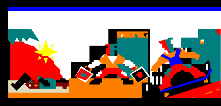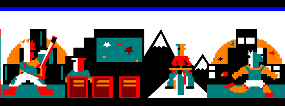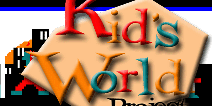




Press Releases
May 22nd, 2000
Representing the community- A challenge for psychology researchers
Innovative research is currently under way in the Psychology Department at the University of Washington. The Kid’s World project is an NIMH (National Institute of Mental Health) funded study of how children’s personalities and environments interact as children develop. Because a true understanding of the range of functioning in children and families can only be gained by having many different families participate in research, this research depends on participation from families in the community.
The goal of the Kid’s World project is to understand children’s unique experiences and their individual reactions to them. Its aim is to explain why some children develop adjustment problems, while others in similar situations adjust well. This information will help in the development of programs designed to help children develop into health individuals with good self-esteem.
The Kid’s World project is one of a wave of research projects that have developed in recent years that strive to include a wide range of families. In the early years of research studies tended to focus on one gender, one ethnic group, or one parenting configuration. More recently, the need to represent the diversity of American communities has become clear and has led researchers and funding agencies to reach out to include families of all cultures and configurations. However, with this desire to represent the community have come the challenges of reaching the members of the community.
Kid’s World is directed by Liliana Lengua, an assistant professor in the Psychology Department at the University of Washington. This project is currently recruiting families, including both one parent and two parent families, from across the Seattle Area. Families with a child in the 3rd, 4th, or 5th grade are asked to be interviewed in their homes for about 2 ½ hours once this year and once a year for two more years. Families are asked questions about the personality and life experiences of the child who is participating, family parenting strategies, and family interactions. Children are asked to interact with their parents, as well as to play games that elicit aspects of their personalities.
The Kid’s World Project has tried different ways to recruit families representative of the community. The primary approach has been to recruit through public schools, a natural meeting place for children in the community. However this approach has its limits. “Much of the recruiting for families we have done so far has been through the Seattle Schools. However, this way of recruiting takes time and effort from teachers and schools, and while we have many classrooms participating, schools don’t always feel they have the resources to participate” says Dr. Lengua. The project has also used other approaches to reaching out to families. “We started to put up flyers in community centers, and we have a graduate student working on reaching out to the community through the internet.” These innovations are necessary to reach as many families as possible and to represent the range of families’ experiences. Dr. Lengua is committed to the task of community recruiting. “We consider it to be crucial that we really get a sense of everyone’s experience, because this research will be used to create programs for everyone. To do this successfully we need to understand how individual children’s characteristics, parenting, and environment interact across cultures within our community. Otherwise, the projects created from the research won’t be useful to the diverse people who make up our community.” If families want to participate in the research they can contact the Kid’s World Project by calling (206) 616-5768.